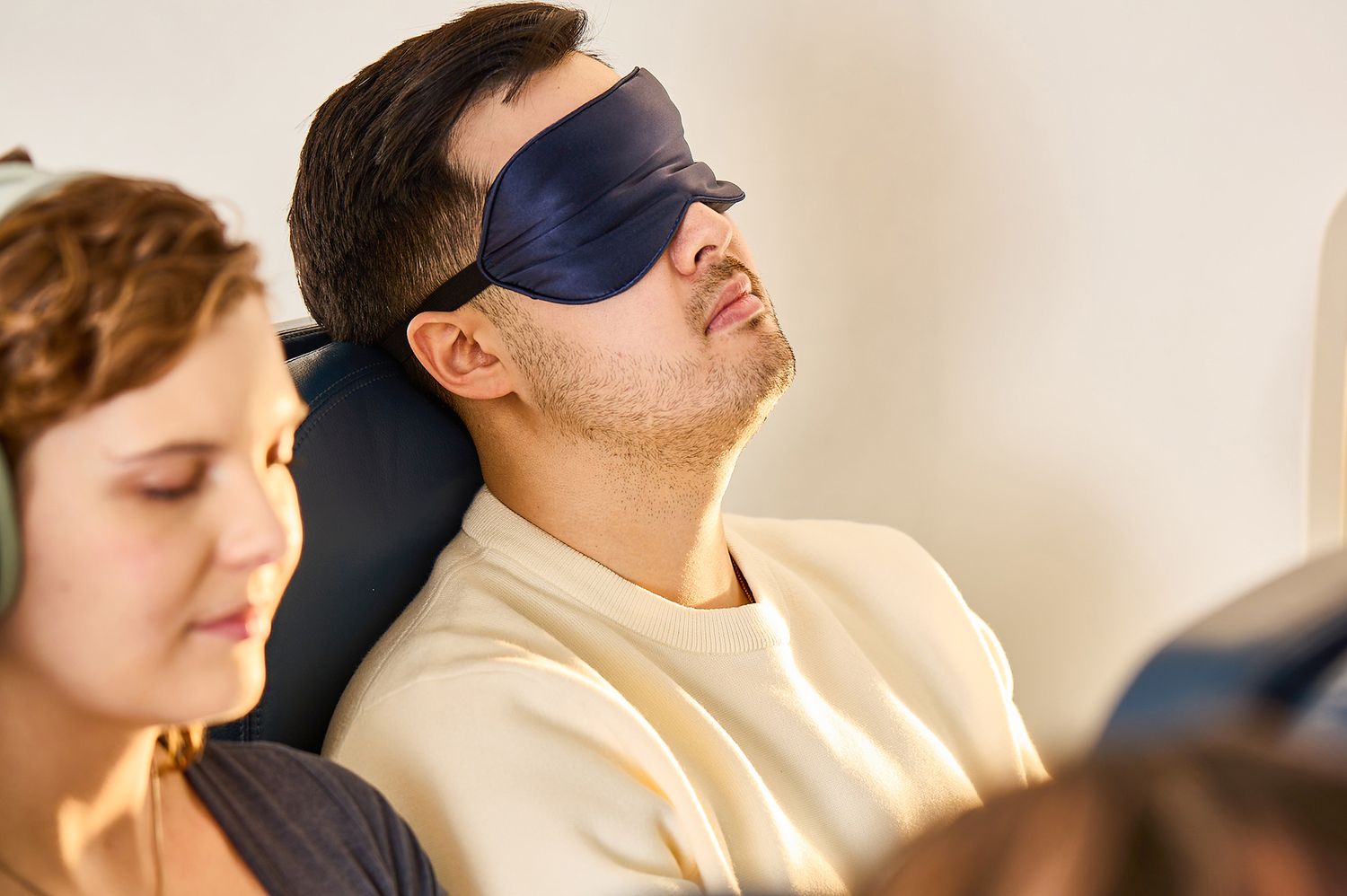As someone who hops between time zones anywhere from one to three times a month, understanding how jet lag affects my sleep—and how I can best take care of my body when traveling—was one of my top priorities when checking into Sensei Lanai, A Four Seasons Resort for the Rest and Reset Program.
While it became immediately clear in my one-on-one sessions with the Sensei guides that my travel writer lifestyle isn’t conducive to sleep consistency—one of the most important factors in getting a good night’s rest—I came away from the experience with a few concrete strategies for ensuring my sleep patterns are optimized, no matter where I am in the world. One of the simplest? Watching the sunrise and sunset.
“There is no cure for jet lag; the best we can do at present is adjust what we can to minimize its impact,” Jim Cahill, a mindset guide at Sensei Lanai, tells Travel + Leisure. A board-certified biofeedback therapist and former brain researcher at Scripps Research Institute, Cahill is intimately familiar with the multitude of elements that influence our sleep patterns. One of those elements is light, which he says is highly effective for “setting and resetting the body’s sleep timing.”
“The brain ‘knows’ what time of day it is, in part, based on the signals from specialized receptors in the eyes whose primary function is not vision, but rather to determine the time of day based on the color of the light they encounter,” he explains. “Both sunrise and sunset spread different colors through the atmosphere that help maintain our sleep rhythms, essentially resetting our circadian rhythm each day.” (If you’ve just flown on a red-eye to Europe, resetting your circadian rhythm will help you go to sleep at the proper time and reduce the effects of jet lag.)
The blue light of the morning, Cahill says, “suppresses the release of melatonin” and simultaneously releases cortisol, which he calls “a sort of built-in caffeine that gets us going every morning.” That said, getting a good dose of morning light should improve your sleep. “For at least several minutes after waking, go outside and expose your eyes to natural morning light. Get the natural stuff: Even clear glasses or windows will filter and distort light, so let your naked eyeballs be bathed directly in natural light,” he recommends.
As evening approaches, you want to switch to light that is lower in intensity and more on the warmer side of the spectrum—just like the sunset. This allows our melatonin levels to rise, and, according to Cahill, it “signals us both mentally and emotionally to start spinning down for that lovely soft landing into restorative sleep.”
That also means it’s extra important to stay off your phone as bedtime approaches, or at least turn on night mode. The bright blue light emitted from the device is a surefire way to disrupt your sleep patterns even more than your long travel day.
Read the full article here


